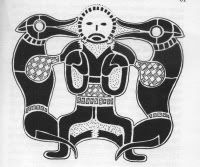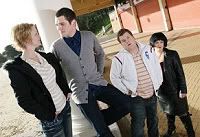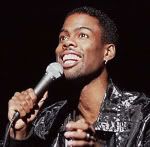The best TV film of the holiday was
The History Boys, a first chance for some of us to see this much-acclaimed play, or at least the film version. I don't know how different the two are but it was apparent that many of the scenes would have worked better inside a proscenium arch than on a big or small screen.
I enjoyed it very much but found it strangely troubling. I went back to the sections on it in Bennett's
'Untold Stories' but they failed to put my mind at ease.
Firstly, I had no idea that Hector's groping had such a central role in the play and in the plot. I fear it may have overshadowed the points that Bennett was trying to make about education. Of course, you could argue it was brave to put that in the play in the current climate and it saved Hector from becoming a sentimentalised Mr Chips character. Then again, he could have given him some other character flaw. It ceretainly provoked horror and incomprehension in the American audiences - the fact that "inappropriate touching" could be treated so leniently by both the playwright and the other characters.
I'm with Bennett to this extent: the current hysteria has elided distinctions between different degrees of abuse so that a grope is regarded as seriously as a rape. Not only does this distort language but it's insulting to those who suffer the horror of serious sexual assault.
According to Bennett's diaries, he was subjected to some ineffectual fumbling on the back of a motorbike at the age of 17 whilst hitch-hiking, which gave him the idea for the Hector scenario. It struck me as remarkable that, of all the motorcyclists in all the world, the young Bennett was picked up by one who fancied tall, skinny, bespectacled, nerdy youths.
In my first phase of blogging, I recounted here how, at the age of about 19, while working at a top London hotel, I was groped on a ladder. I wrote it as a humourous piece and the experience still makes me laugh - chiefly because of all the people I wanted to lay hands on me at that age, a short, elderly, bald, Cockney Jew with pebble glasses had never figured in my fantasies. Yet I hoped, and still hope, that the pleasure he derived from that brief, impertinent encounter with my genitalia justified the risk that he took. The boys in Bennett's play took much the same view of Hector's fumblings.
But here's the problem: there cannot be a trade-off between groping pupils and inspired teaching. Maybe that's not what Bennett was saying but it sometimes felt as though he was. In the final scene, we're told that the gay Posner becomes a teacher and is a better teacher for having to fight the temptation to touch his pupils. I found that pretty shocking. And if I were one of the many gay teachers in our schools, I'd find it rather insulting. Do straight teachers struggle to keep their hands off their pupils? Maybe they do. It's a struggle that some teachers of both sexes and both orientations sometimes lose, as we know from regular court cases. So exactly what point is Bennett making here?
Anyone who has read much autobiography, from Arthur Marshall (private school) to Denis Healey (Grammar School) will know that generations of boys have been groped by teachers and not taken it very seriously and certainly not, to use a phrase from the play, been "
scarred for life". And not all those teachers were Hectors. Some were probably incompetent teachers, not that that makes any difference. Whilst it's wrong that today such people would be treated with as much severity as a serial rapist and whilst it's tragic that a good teacher should be sacrificed for such transgressions, it's surely not desirable to go back to an age of turning a blind eye and discreet warnings from the Head.
My second problem with the play was the issue of realism, or lack of it.
Bennett touches on this in his diaries. Nicholas Hytner wanted to remove the scene in the gymnasium on the grounds that sixth formers didn't do PE. Bennett wasn't happy with this on the grounds that reality and a work of art are two different things. But he concedes that Hytner is right in one respect: "once the audience starts thinking
'But school isn't like that', they're off the hook."
The gym scene was in the film. I don't know whether it was in the play. But I suspect this issue of realism was more of a problem with the film because unless we're clearly shown that a film is fantasy we expect it to at least have some pretensions to realism, particularly if we're told that it's set in a Northern Grammar School in the 1980s. It's quite different from a film like Lindsay Anderson's '
If'' which was a transparent blend of realism and surrealism set in a fictional public school.
So much in the
The History Boys is implausible, including the clunking plot devices.
Would a boy like Posner be so openly gay at school and sing a love song to another (straight) boy in front of the class? Would a boy even as conceited and self-assured as Dakin invite a teacher to give him a blow-job - not as an act of defiance in front of his mates but in a private conversation? And all of this 20 or more years ago, bearing in mind that 20 years in gay history is about 100 years in straight history.
There are two answers to these criticisms. Firstly, that a piece of drama is not a documentary. And secondly, that a dramatist is justified in using some pretty blunt instruments to make his points if those points are worth making in the first place.
I'm certainly with Bennett in his central argument that knowledge is an end in itself and that today children are crammed with facts, like battery chickens being crammed with chicken feed, in order to lay fat economic eggs. But I'm not sure there was ever a golden age of education when more than a small minority of children were enthused with a love of subjects for their own sake.
The play has an added resonance for me because I was a state pupil who sat the now defunct Oxbridge entrance exam and went for interview. Unlike the boys in the play, I did this in splendid isolation, sitting the exam in a huge hall on my own, apart from the invigilator. I wasn't schooled in the techniques of impressing the examiners in the way that Irwin teaches the boys in the play. But fortunately, like Bennett himself (as revealed in his diaries), I was adept at perfectly legal 'cheating'. Louis MacNiece described examination papers as "
intellectual window dressing" and I was quite good at that - sprinkling erudite references and quotations like confetti, implying a far greater depth of knowledge than I had. (I do it here, you know). My defence is that you need to be pretty intelligent to do that successfully.
The Oxbridge interview scenes in the film reminded me of my own interview at one of Oxford's most conservative colleges. I was rather like the Rudge character, though, if I may be so bold, rather more academic. I had drunk two or three pints of
Wadworth's 6X before the interview to calm my nerves, and then had to chew an entire packet of Polo mints to kill the smell.
I was ushered into the presence of three elderly dons who were drinking Earl Grey and eating cream cakes from a loaded tea trolley. They didn't offer me a cup of tea, which I thought was ill-mannered.
The conversation turned to the novels of Hardy, which I had written about in the exam. "
Have you read Jude the Obscure"? said one of them. "
Actually", I said, the 6X still working its magic, "
I feel very like Jude the Obscure, coming here today from a College of Further Education."
I expected them to laugh.
There was a long silence. The oldest don went very red in the face. Several of the others started coughing. A raw class nerve had been touched. Not for the last time, I had been fucked up by my own frivolity.
Like Rudge, I was accepted against the odds, albeit by a different college that had somehow dragged itself into the early part of the 20th century.
Unlike Rudge, I never actually went. Partly because in those days you had to have 'O' level Latin and life seemed too short to learn that. Also because moving to London seemed more attractive than moving to Oxford and living with the public school Hooray Henrys I'd met during interview week.
I've never regretted it, even though it meant living in tiny bedsits and being groped on a ladder by an elderly, myopic Jew.
Of course, had I been to public school I'd have been no stranger to either spartan living conditions or being groped, although that's one experience I'm glad to have missed. And, aside from the wandering Jewish hands, I was once groped on the Underground by a boy who looked like Dakin in the play. Although he unfortunately alighted at King's Cross and I was going to Camden, that was rather more exciting than being touched up during double Latin by an elderly man in a three-piece tweed suit.
 By common consent this was the worst series of X Factor, yet it had a surprisingly gripping final and a fairy tale ending.
By common consent this was the worst series of X Factor, yet it had a surprisingly gripping final and a fairy tale ending. On my annual Christmas shopping trip to Harrods I thought I had avoided the attentions of Mr Al Fayed when he suddenly appeared from behind some York hams and thrust a tin of Gentleman's Relish into my hand.
On my annual Christmas shopping trip to Harrods I thought I had avoided the attentions of Mr Al Fayed when he suddenly appeared from behind some York hams and thrust a tin of Gentleman's Relish into my hand. Congratulations to Gavin and Stacey on its success at the Comedy Awards.
Congratulations to Gavin and Stacey on its success at the Comedy Awards. Count Arthur Strong, currently in the 6.30 slot on Tuesdays on Radio 4, is one of the very few comedians who can make me cry with laughter. Even my favourite comedians are doing well if a smile plays about my lips, but that's just a quirk of my character.
Count Arthur Strong, currently in the 6.30 slot on Tuesdays on Radio 4, is one of the very few comedians who can make me cry with laughter. Even my favourite comedians are doing well if a smile plays about my lips, but that's just a quirk of my character. A common criticism of bloggers is that they do nothing but moan. So I like to share my enthusiasms as often as possible.
A common criticism of bloggers is that they do nothing but moan. So I like to share my enthusiasms as often as possible.